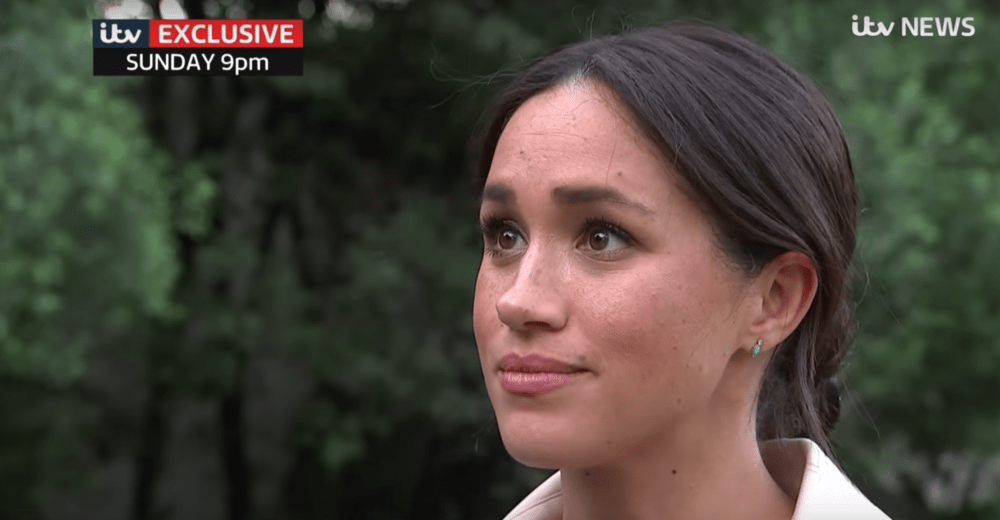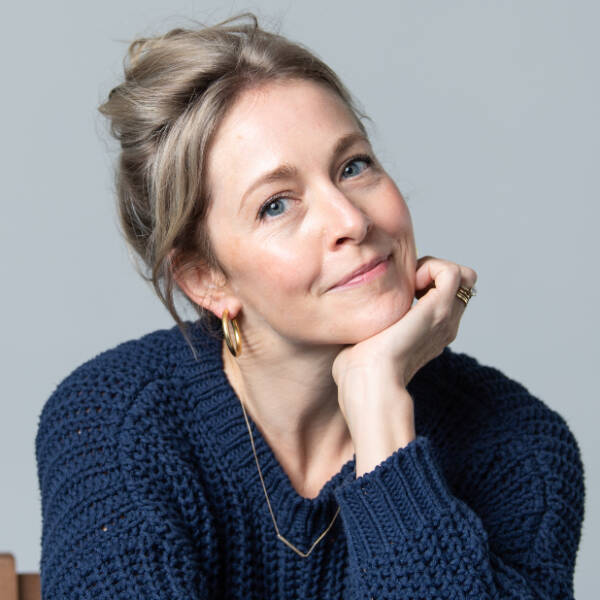Advertisement
Commentary
Meghan Markle Is Not OK, And That’s OK

I watched, heart in my throat, as Meghan Markle slowly and painstakingly chose words to formulate an answer to ITV reporter Tom Bradby’s question about whether or not she’s “OK” following intense and relentless media scrutiny following the birth of her first child.
For a split second, it seemed like she might deliver a smooth not-actual-answer response typical of the famously opaque and private royal family. Maybe an “I’m managing,” or a “we’re getting through it” followed by a quick smile. But instead, with what seemed like great exhaustion and a dash of defeat, she acknowledged that she is struggling — that she is not OK.
Of course she’s not OK. She’s a woman adjusting to the seismic change that is new motherhood.
Let me be clear: new motherhood alone is a sufficient reason to not be OK. Add the unimaginable pressure of constant racist and sexist media coverage on top of this, as the Duchess of Sussex calls it, “very real” and very “vulnerable” time, and I’m frankly amazed she was able to get through the interview without dissolving into tears. I exhaled with relief when it ended, unaware that I had been holding my breath in the first place.
Meghan’s wide, pleading eyes and tremulous answer brought me, with disorienting speed, back to a time I was asked the same question.
Four weeks following the birth of my first child, I sat huddled in my husband’s hoodie, bleeding into a super maxi-pad, in a cold, too-bright exam room. I shifted on the hard stool, trying to sit in a way that made my injured tailbone hurt less, and stared listlessly at the paper in my hand — a questionnaire given to new moms to screen for postpartum depression or anxiety. My midwife swept in and paused a second before asking, her voice quiet, her words slow and deliberate, “Hi Sara. Are you OK?”
Something about the very fact of being asked cracked me wide open, and I choked out with a sob, “No.” I can still feel the lump in my throat, the sting of the first tears to spill.
Of course I wasn’t OK. I was a woman adjusting to the seismic change that is new motherhood.
My midwife prescribed Zoloft and referred me to a therapist specializing in maternal health, but maybe most importantly, and what I still regularly think about, she asked me if I was OK. She recognized this was a question that needed to be asked, and showed, on the most basic level, that she cared about my answer.
Advertisement
I’ve never been particularly invested in the royals (until last week, when I discovered Elizabeth Holmes’ addictive, smart, and deeply satisfying So Many Thoughts on Instagram). But ever since my experience with postpartum depression, I have been invested in following any and every story of the postpartum experience. Princess or not, what so captivated me about this clip, and what has clearly resonated with so many other women, is the fact that new motherhood is difficult no matter who you are or where you come from, and that we are failing, in various degrees depending on the country and culture, to support the people who literally create ALL PEOPLE.
Nearly all new mothers experience the “baby blues,” symptoms of which include “feeling stressed, sad, anxious, lonely, tired or weepy.” This is in addition to healing from the physical trauma of birth, the extremely real repercussions of sleep deprivation, and the impossible to fathom experience of adjusting to being wholly responsible for another human creature’s survival. To even refer to this as the “baby blues” feels infantilizing and insulting — like it’s a cute little malady suffered by a cute little kitten. One in seven women experience postpartum depression or anxiety in addition to the “baby blues,” but the real numbers are likely much higher, since this statistic accounts only for those women who have been diagnosed and offered help.
Something is very wrong with a world in which so many mothers, responsible for creating, giving, and sustaining life, are not OK. Something is even more wrong with the fact that this question, of whether or not mothers are OK, is so rarely given serious consideration.

